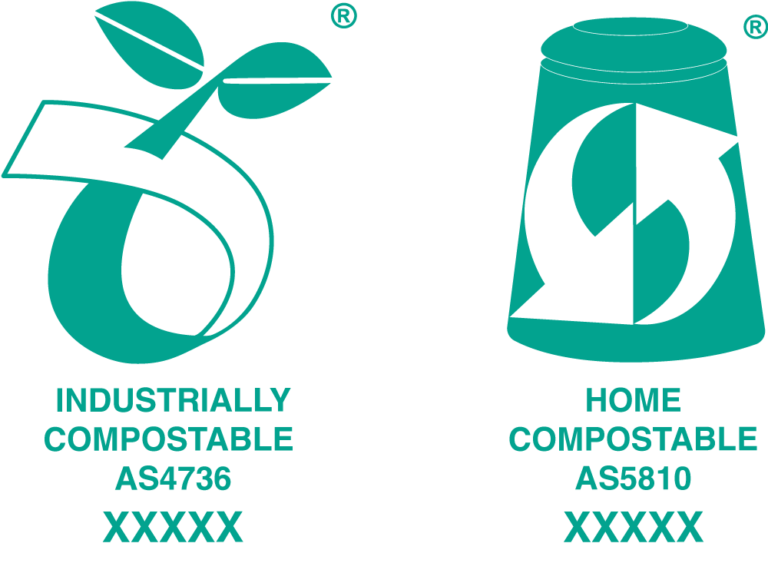What Do the Certified Compostable Logos Mean?
Certified Compostable Logos prove compostable products are what they claim to be.
It means they’ve undergone a stringent test regime to become certified home or industrially compostable to European standards taking into account the time and conditions in which compostable products break down. But it’s more than a logo, it’s a registered trademark owned by European Bioplastics – an association representing the interests of the bioplastics industry in Europe.


 UK
UK AU/NZ
AU/NZ











